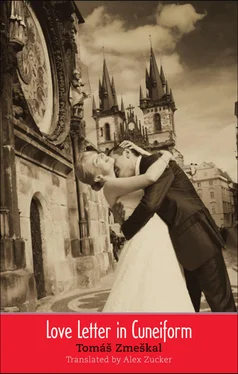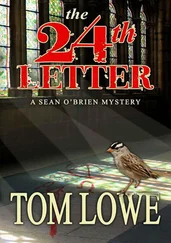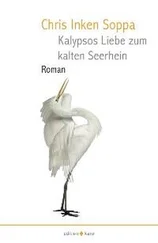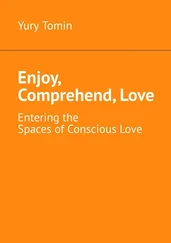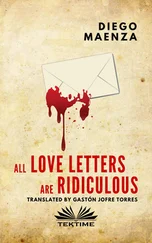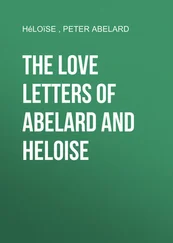“Smoking isn’t allowed in here, but it doesn’t bother me,” said Jiří. “We can leave the window open when we go.”
“I was planning to have one on the way to the theater, and during it too. Since the theater’s outside, I’m sure you can smoke there. I’ve been looking forward to lighting up in the theater all day. I assume the local thespians won’t be too exciting.”
“Mmm,” said Jiří. “You can have a smoke at dinner. I don’t mind.”
“Shall we go then?”
“You know, I’m actually not that hungry yet. But we can go now, if you want to smoke on the way.”
“That’s all right, I can wait. If I can’t practice faith anymore, at least I can practice willpower.” Jiří didn’t respond, staring into the rainy street out the window.
“If you want to light up,” he said, “I can open the window a little more.”
“No, that’s fine,” said Antonín, slipping his pen into his shirt pocket.
“What is it like to lose faith?” asked Jiří. “Does it happen all at once, or is it …”
“A gradual process, is that what you mean?”
“I’m not quite sure how to put it,” said Jiří. “Do you know what I mean?”
“The year before I graduated, I was on an internship in Slovakia and I asked for a placement there. It wasn’t even that hard. Nobody was too eager to go there.”
“What’s a placement?” Jiří asked.
“In the old days, under communism, that was a decision by the authorities about where you would work. I also considered Ostrava, but I liked nature, so instead I went out to the tip of Slovakia. I knew the area a little, so I applied and I was accepted.”
“I guess we’re not going to that church then, are we?” Jiří said.
Antonín shook his head. “I always thought God was slightly benevolent.”
“What do you mean, slightly? ”
“You know … our family was Catholic for many generations. And when you’re Catholic that long, you believe the same thing as your parents and grandparents. You believe that God is infinitely merciful, but only slightly benevolent.”
“I thought you said you didn’t believe anymore?”
“Let’s go have dinner,” Antonín said, putting on a cardigan vest.
“So what was it like out there?” asked Jiří.
“I still remember there was a little blackboard next to the gatehouse in front of the hospital entrance. You know, like at school — only it never had anything written on it. One day I asked the gatekeeper why it was there and he said in case of emergency. ‘What kind of emergency?’ I asked. ‘The kind that are unpredictable,’ he said. ‘The ones that no one expects.’ I don’t remember anyone ever writing anything on it. I would always stop when I came to it and light a cigarette, which lasted exactly as long as it took me to make my sleepy walk to the unit every morning.”
“It’s stopped raining. Shall we go?”
“Let’s.”
“So how did you lose your faith?” Jiří asked.
“I’m pretty long-winded, huh?”
“That’s not what I meant.”
“It’s all right, I am long-winded … When you believe the way I did and you come from a family where it’s tradition and tradition is something you don’t really talk about, it’s easy to believe in a lukewarm way. At least it was for me. But I think it’s safe to say that it was the same for my parents. My mother was kind of a snob about it, unlike my father. I’d say his faith was more condescending.”
“So what happened?”
“What happened was I fell in love. I fell in love and didn’t even know it.”
“How can you fall in love and not know it?”
“When you start asking questions like that, you’re in serious danger of having the same thing happen to you. I would advise that … never mind, sorry. I would advise and I’m important are both clear signs of poorly managed old age.”
It stopped raining.
“After a few weeks working there, I saw Klára for the first time, in the garden on the hospital grounds. I didn’t know her name yet, I only found that out later, but I saw two women sitting on a bench: one on the elderly side; the other one, next to her, a tall blonde with long, flowing hair. These days she’d probably have a career as a model for one of those magazines my daughter reads. But that didn’t exist back then. She sat straight, almost perfectly still. Then all of a sudden she turned and looked me right in the eye. I felt it in my gut. Blue-gray eyes and blonde hair down to her waist. She was so gorgeous my cigarette almost fell out of my mouth. Gorgeous and loaded with sedatives. It was like she was made of rubber. Walk, eat, and sleep, that was all she did. I asked a colleague about her one time and he said that she was in shock, but he didn’t know how long it would last. That was the last time I asked.”
“Why don’t we go to dinner? You can tell me the rest on the way.”
“You’re right,” Antonín said, and they went out into the street. The historical city center was crowded with restaurants.
“What are you in the mood for?”
“How about fish?” said Jiří.
“There’s a restaurant by the river, but I doubt the fish come from the Vltava.”
The restaurant was half empty. They chose a table and sat down. Antonín laid his cigarettes next to the ashtray. They looked through the menu and ordered their meals.
“So did you fall in love with that blonde?” Jiří asked after a while in silence, starting in on his soup.
“Yes. I was in love with Klára, and with the nature all around. I knew I was in love with nature, fortunately. I adored it. I walked all over the place. Thick, green forests. Dense woods. Dark, wet, lush greenery, with headstones all over the hills.”
“Headstones?” Jiří asked, slurping from the bowl as he tipped it toward him and spooned the last drops of liquid into his mouth.
Antonín glanced around distractedly, following Jiří’s maneuvers out of the corner of his eye. “That corner of the country was as charming as it was deserted. It was deserted right up till the end of the war. You couldn’t even tell that there had been a war there. I knew it, of course, the same way I knew that in 1882 Koch published his first work on TB. But that’s it. Just information. When I walked through the villages in the countryside, though, I discovered that the locals never went into the forest — they just walked along the edge. At first I thought it was because they were so close to the border with the Soviet Union, nowadays it’s Ukraine. Then one day, equipped with a good tourist map, I asked how to get to the next valley, and a woman in a village told me there was a path over the hills, but the last time she had taken it was on a march two or three years after the war. By the time I got there, it had been more than ten years since the war.”
“So how did they get from one valley to the other?”
“The regular way, by bus.”
“But why didn’t they take the path?”
“Well, one, it was harder, and two, because of the smell.”
“What smell?”
“The war had passed through even that remote region. I realized that the Germans had dug in there, in the mountains, gorges, and passes, dead set on not letting the Red Army pass. Apparently they call that a retreat to fallback position. Also, as one of my colleagues from there explained, there was no way around it. What with the mountains and all. So there had been fighting there. Even the smallest patch of land was full of steel. And fallen soldiers, too. The woman in the village told me the stench in the woods was so bad for years after the war that they just stopped going there. There were thousands of buried soldiers.”
“Mm,” Jiří said. “I don’t think I want that fish anymore.”
Читать дальше
